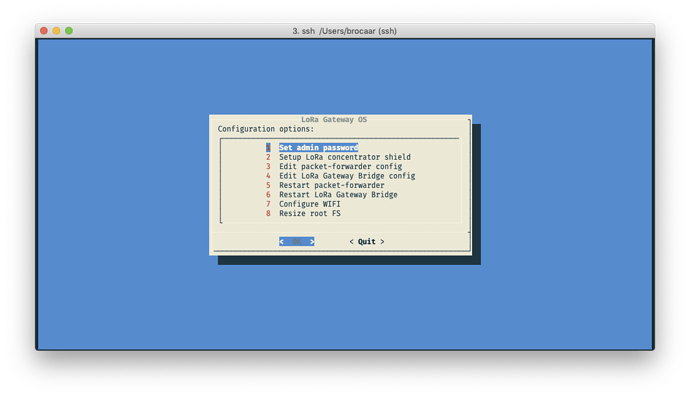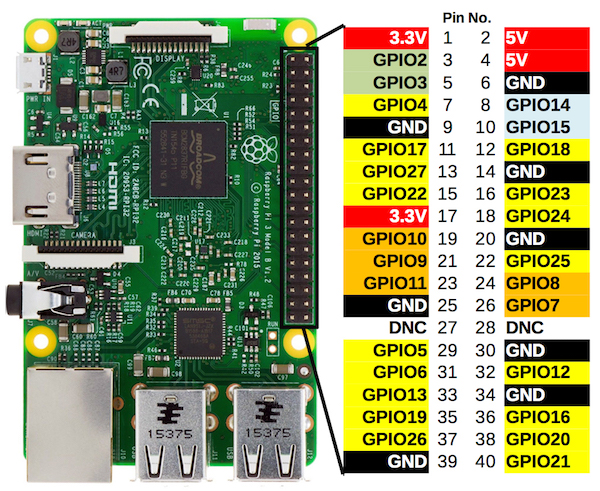BTW, here is the log you asked for:
raspberrypi3:/etc/lora-packet-forwarder$ sudo /opt/lora-packet-forwarder/lora_pkt_fwd
*** Beacon Packet Forwarder for Lora Gateway ***
Version: 4.0.1
*** Lora concentrator HAL library version info ***
Version: 5.0.1;
INFO: Little endian host
INFO: found global configuration file global_conf.json, parsing it
INFO: global_conf.json does contain a JSON object named SX1301_conf, parsing SX1301 parameters
INFO: lorawan_public 1, clksrc 1
lgw_board_setconf:427: Note: board configuration; lorawan_public:1, clksrc:1
INFO: no configuration for LBT
INFO: antenna_gain 0 dBi
INFO: no configuration for tx gain lut 12
INFO: no configuration for tx gain lut 13
INFO: no configuration for tx gain lut 14
INFO: no configuration for tx gain lut 15
INFO: Configuring TX LUT with 12 indexes
INFO: radio 0 enabled (type SX1257), center frequency 867500000, RSSI offset -166.000000, tx enabled 1, tx_notch_freq 0
lgw_rxrf_setconf:476: WARNING: NOT A VALID TX NOTCH FILTER FREQUENCY [126000…250000]Hz
lgw_rxrf_setconf:488: Note: rf_chain 0 configuration; en:1 freq:867500000 rssi_offset:-166.000000 radio_type:2 tx_enable:1 tx_notch_freq:0
INFO: radio 1 enabled (type SX1257), center frequency 868500000, RSSI offset -166.000000, tx enabled 0, tx_notch_freq 0
lgw_rxrf_setconf:488: Note: rf_chain 1 configuration; en:1 freq:868500000 rssi_offset:-166.000000 radio_type:2 tx_enable:0 tx_notch_freq:0
INFO: Lora multi-SF channel 0> radio 1, IF -400000 Hz, 125 kHz bw, SF 7 to 12
lgw_rxif_setconf:607: Note: LoRa ‘multi’ if_chain 0 configuration; en:1 freq:-400000 SF_mask:0x7e
INFO: Lora multi-SF channel 1> radio 1, IF -200000 Hz, 125 kHz bw, SF 7 to 12
lgw_rxif_setconf:607: Note: LoRa ‘multi’ if_chain 1 configuration; en:1 freq:-200000 SF_mask:0x7e
INFO: Lora multi-SF channel 2> radio 1, IF 0 Hz, 125 kHz bw, SF 7 to 12
lgw_rxif_setconf:607: Note: LoRa ‘multi’ if_chain 2 configuration; en:1 freq:0 SF_mask:0x7e
INFO: Lora multi-SF channel 3> radio 0, IF -400000 Hz, 125 kHz bw, SF 7 to 12
lgw_rxif_setconf:607: Note: LoRa ‘multi’ if_chain 3 configuration; en:1 freq:-400000 SF_mask:0x7e
INFO: Lora multi-SF channel 4> radio 0, IF -200000 Hz, 125 kHz bw, SF 7 to 12
lgw_rxif_setconf:607: Note: LoRa ‘multi’ if_chain 4 configuration; en:1 freq:-200000 SF_mask:0x7e
INFO: Lora multi-SF channel 5> radio 0, IF 0 Hz, 125 kHz bw, SF 7 to 12
lgw_rxif_setconf:607: Note: LoRa ‘multi’ if_chain 5 configuration; en:1 freq:0 SF_mask:0x7e
INFO: Lora multi-SF channel 6> radio 0, IF 200000 Hz, 125 kHz bw, SF 7 to 12
lgw_rxif_setconf:607: Note: LoRa ‘multi’ if_chain 6 configuration; en:1 freq:200000 SF_mask:0x7e
INFO: Lora multi-SF channel 7> radio 0, IF 400000 Hz, 125 kHz bw, SF 7 to 12
lgw_rxif_setconf:607: Note: LoRa ‘multi’ if_chain 7 configuration; en:1 freq:400000 SF_mask:0x7e
INFO: Lora std channel> radio 1, IF -200000 Hz, 250000 Hz bw, SF 7
lgw_rxif_setconf:581: Note: LoRa ‘std’ if_chain 8 configuration; en:1 freq:-200000 bw:2 dr:2
INFO: FSK channel> radio 1, IF 300000 Hz, 125000 Hz bw, 50000 bps datarate
lgw_rxif_setconf:637: Note: FSK if_chain 9 configuration; en:1 freq:300000 bw:3 dr:50000 (50000 real dr) sync:0xC194C1
INFO: global_conf.json does contain a JSON object named gateway_conf, parsing gateway parameters
INFO: gateway MAC address is configured to B827EBFFFE6E0474
INFO: server hostname or IP address is configured to “localhost”
INFO: upstream port is configured to “1700”
INFO: downstream port is configured to “1700”
INFO: downstream keep-alive interval is configured to 10 seconds
INFO: statistics display interval is configured to 30 seconds
INFO: upstream PUSH_DATA time-out is configured to 100 ms
INFO: packets received with a valid CRC will be forwarded
INFO: packets received with a CRC error will NOT be forwarded
INFO: packets received with no CRC will NOT be forwarded
ERROR: FAIL TO CONNECT BOARD
ERROR: [main] failed to start the concentrator
raspberrypi3:/etc/lora-packet-forwarder$
 Each image also contains a
Each image also contains a 


 I’ve found out that by removing a line in the inittab, the issue disappears. The line that needs to be removed is something like:
I’ve found out that by removing a line in the inittab, the issue disappears. The line that needs to be removed is something like: